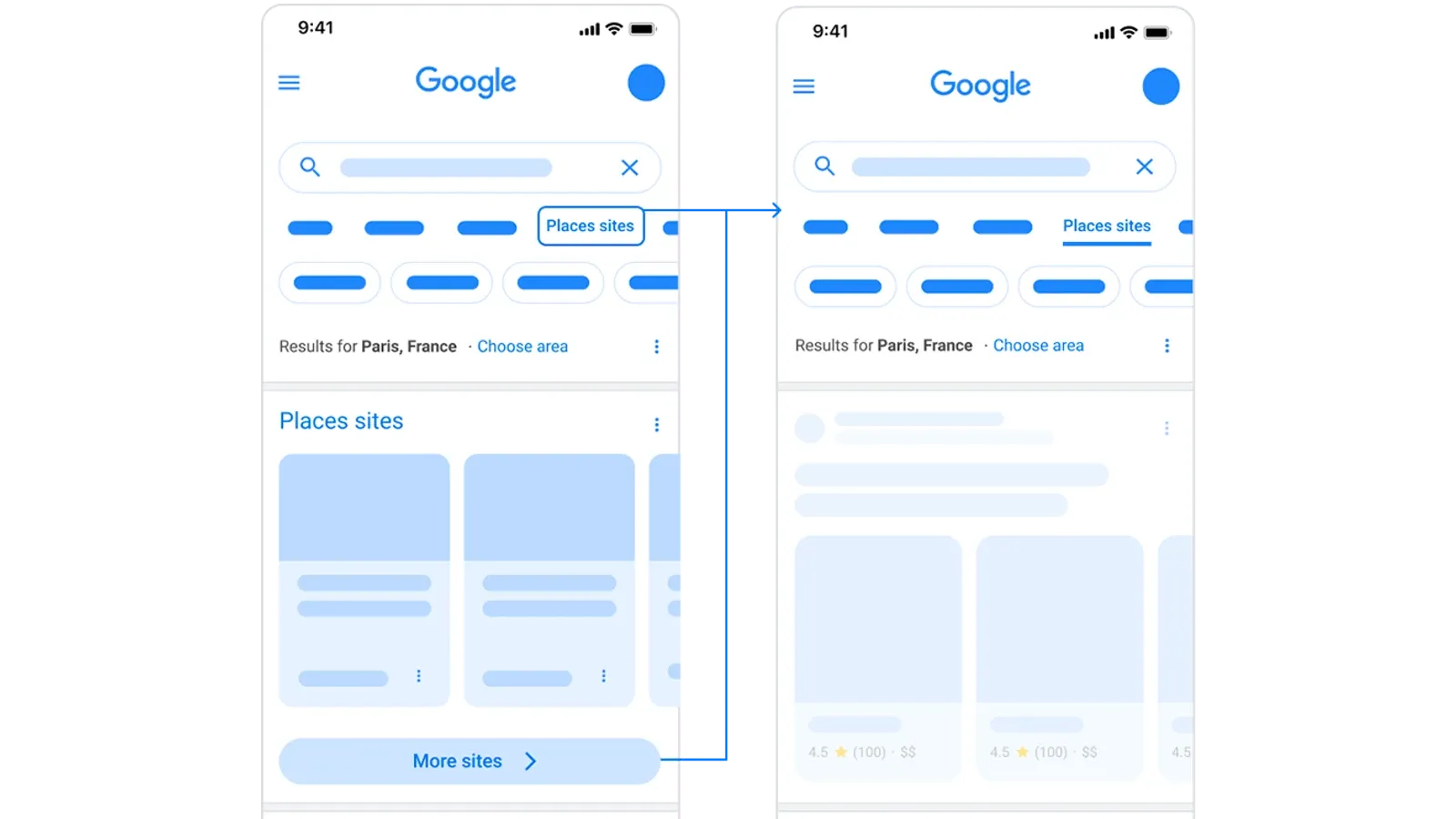Google updates Search Experiences in EEA with new rich result units
Google today announced new search experiences for users in the European Economic Area (EEA), focusing on richer results and improved visibility for publishers and businesses.

Google today announced new search experiences for users in the European Economic Area (EEA), focusing on rich results and improved visibility for publishers and businesses. This update aligns with Google's preparations for the Digital Markets Act (DMA).
Updates include:
- New carousel rich results: Travel, local, and shopping queries in EEA may display carousels featuring price, rating, and images from relevant websites. Structured data markup is recommended for enhanced presentation.
- Dedicated aggregator units: Users can easily access top aggregator sites for places, jobs, flights, and products (being tested first in Germany, France, Czechia, and the UK). No markup required for inclusion.
- Refinement chips: Users can narrow search results to specific aggregator categories.
- New airline unit for flights queries: Offers dedicated space for airline websites.
- Express interest: Publishers based in or serving EEA users can learn more and express interest in these experiences through dedicated forms.
Benefits for publishers
- Increased visibility in search results for travel, local, and shopping queries.
- Potential for higher click-through rates with visually appealing rich results.
- Inclusion in dedicated aggregator units without additional effort.
- Opportunity to participate in flight-specific experiences (for airlines).
Actionable steps
- Review Google's guidelines for structured data markup to enhance eligibility for rich results.
- Monitor search performance in EEA countries to assess the impact of these changes.
Rich Results
Rich results are enhanced experiences that go beyond the standard blue link. They often include visual elements, interactive features, and other non-textual information to provide users with a richer and more informative search experience.
Here are some key points about rich results:
- Types of rich results: Common types include carousels (e.g., for hotels, products), knowledge panels (e.g., for celebrities, locations), recipe summaries, event details, and more.
- Information sources: Rich results are typically generated using structured data in the markup of a web page. This structured data helps Google understand the content and present it in a more visually appealing and informative way.
- Benefits for users: Rich results can help users find the information they're looking for more quickly and easily. They can also be more engaging and visually appealing than standard text results.
- Benefits for publishers: Rich results can lead to increased traffic and engagement for websites. They can also help websites stand out from the competition in search results.

